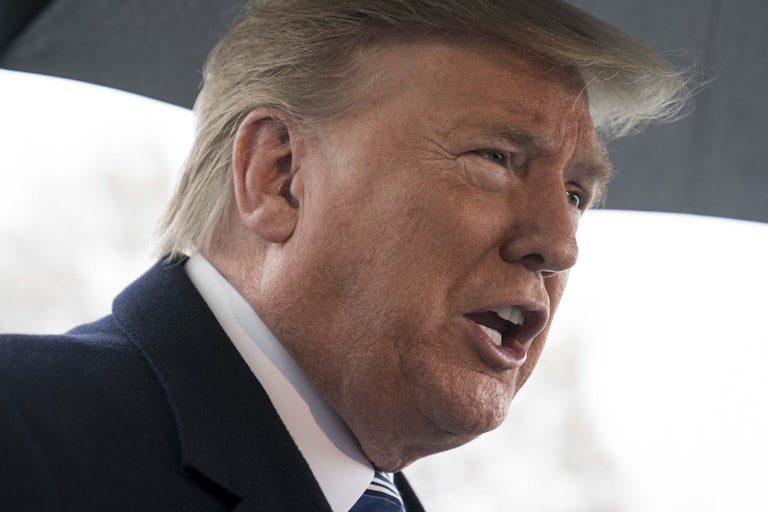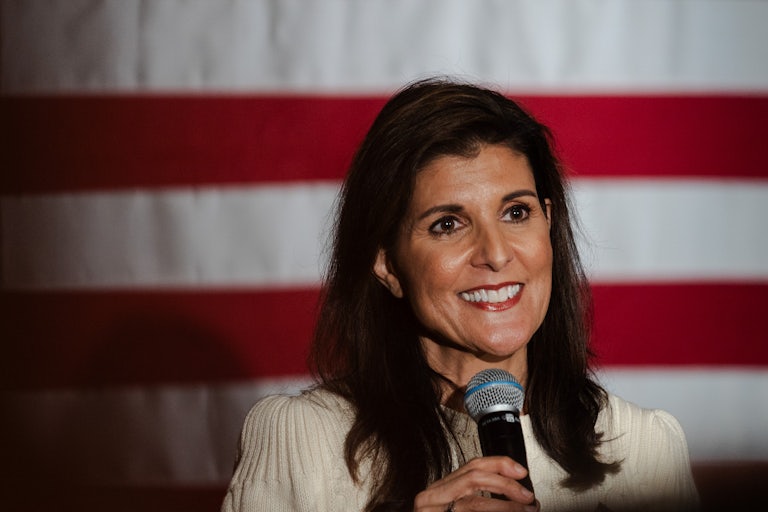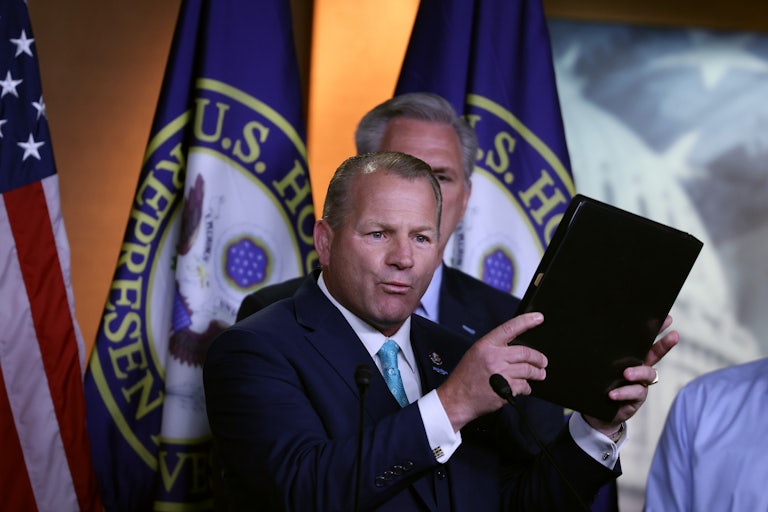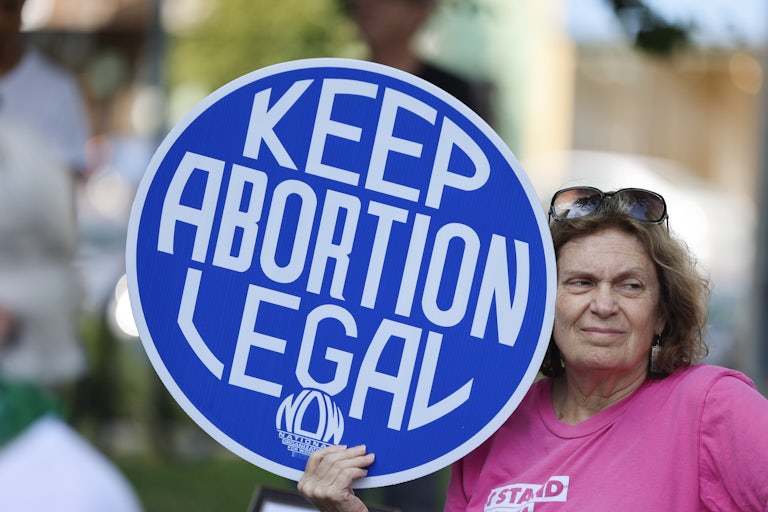Trump Calls Out Another Election-Stealer—and It’s Not Joe Biden
Donald Trump is already sowing claims of election fraud.

Donald Trump’s “Stop the Steal” brand apparently worked so well for the former president’s prospects that his campaign has decided to use it again, this time copying and pasting the phrase into a GOP primary flier.
But now, Trump has a new target: Ron DeSantis.
The flier, which flooded mailboxes in Iowa, accuses DeSantis of attempting to “rig” the Iowa GOP primary.
“Stop the fraud. Reject DeSantis on January 15,” the flier reads, including a quote from Trump that claims, “When you swamp them with enough votes, there’s a point at which they can only cheat so much.”
The charge stems from an interview in which DeSantis’s wife, Casey DeSantis, urged voters from around the nation to help their cause, claiming that “you do not have to be a resident of Iowa to be able to participate in the caucus,” though “participate” does not necessarily translate to “vote.”
Trump campaign out with a mailer in Iowa accusing DeSantis of trying to rig the caucuses https://t.co/EIJDVziWQ4 by @DashaBurns @jonallendc pic.twitter.com/4EtkazxENw
— Amanda Terkel (@aterkel) January 5, 2024
The baseless accusation of more voter fraud comes as a sign of weakness, not strength, as Trump prepares to square up against Florida Governor Ron DeSantis and former South Carolina Governor Nikki Haley in the fast-approaching Republican primary. While Trump has led his competitors by a startling margin since the campaign began—and by nearly 50 percentage points at the time of publication—the pair do pose a serious if unconventional threat, particularly as the former president contends with several states removing him from the GOP ballot entirely on the basis of violating the U.S. Constitution’s Fourteenth Amendment.








